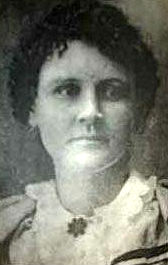 The illusion itself is a reasonable encapsulation of our fascination with Native Americans. And the unfortunate bigoted bullying that compels our childish attention to the sewer to and from which so much is presently flowing does also provide an opportunity to remind.
The illusion itself is a reasonable encapsulation of our fascination with Native Americans. And the unfortunate bigoted bullying that compels our childish attention to the sewer to and from which so much is presently flowing does also provide an opportunity to remind.
Despite even the earliest Experience of William Apess (1829) to reject the stereotyping of Indians, our wider ambivalence about native identity in the face of slaughter, genocide and Christianity (I know) has left most Americans on the wrong side of a deep divide. We need to learn so much more than our cartoon histories allow. So let’s do.
Creek writer Sophia Alice Callahan wrote the first novel written by a woman Native American called Wynema: A Child of the
Forest, which was published in 1891. The novel stresses how a white girl’s progressive adoption of an
identifiably Native American perspective enhances her relationship with a Native American girl named
Wynema.
By ensuring mutual comprehension and respect and, on a larger level, promoting intercultural
bonds they break down the barriers that their own cultures had enveloped them with. As the story
progresses, both the white girl named Genevieve and Wynema learn more about one another’s cultural
customs, and this cross-cultural appreciation fortifies their loving relationship.
While Wynema starts out as Genevieve’s student, she soon becomes her friend and her sister, which the novel suggests evolves not
simply with the passing of time but rather from Genevieve’s increasing understanding of and respect for Muscogee people. As
Genevieve becomes more assimilated into Muscogee life, she refers to Wynema specifically as “a friend” rather than as a pupil or
protege. Moreover, Genevieve’s acceptance of Wynema and Robin’s marriage and, thus, of Wynema as a sister coincides with a
profound shift in the way that Genevieve refers to the Muscogee. Whereas she once referred to them with the objectifying label of “this
people” (emphasis added), by the end of the story she tenderly deems them “my people” (emphasis added). The novel further
highlights that the Muscogee are “her people,” a sign of her acculturation, when they welcome her back after her return from a trip to
her mother’s home with all of the unbridled enthusiasm and “warmth” afforded to any member of the tribe, including Wynema.
Other Native American writers are listed at the link. A wonderful contemporary Native Canadian writer, Joseph Boyden, is the author of an amazing novel about World War I, Three Day Road.
Familiarize yourself. Don’t let a stupid bully hung up on a childish reference be the stand-in for anything in your consciousness. Reject the caricature, if not on behalf of its target than in solidarity with its origin.
Image of Sophia Alice Callahan via wikipedia.
